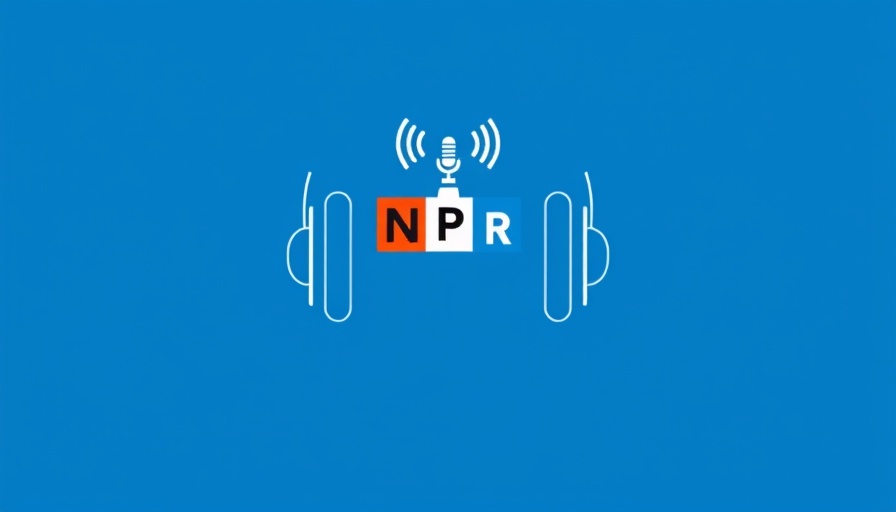
Understanding the Hidden Costs of Cutting Medicaid
The debate surrounding the reduction of Medicaid funding often focuses solely on budgetary savings, yet the wider implications of such decisions can unleash a multitude of hidden costs that affect society at large. As the federal government gears up to decrease Medicaid support in the wake of a significant Republican tax and spending bill, many are left to wonder: what does this mean for the average American? A Congressional Budget Office forecast suggests that by 2034, around 10 million Americans are poised to lose their health insurance as a direct consequence of these cuts.
The Ripple Effect on Healthcare Accessibility
Unlike other consumer services, healthcare access isn't a luxury that people can opt out of when faced with financial strain. If individuals lose their insurance, their healthcare needs don't vanish. Instead, they often turn to federally qualified health centers (FQHCs), which serve as critical lifelines for low-income populations. These community clinics provide holistic care, including primary care and mental health services, charging based on what patients can afford. However, with diminishing Medicaid enrollment, the financial stability of these clinics becomes increasingly precarious.
The Financial Strain on FQHCs
Although FQHCs serve over 31 million patients, their primary source of revenue stems from Medicaid reimbursements. As funding diminishes, these clinics may struggle to maintain their current levels of care. With reported Federal grants in 2023 amounting to $5.6 billion, they operate on thin margins, making the loss of Medicaid patients particularly alarming. Consequently, these centers might find themselves needing to reduce services, lay off staff, or even close their doors entirely, pushing uninsured patients into more costly emergency care scenarios.
The Role of Hospitals as Insurers of Last Resort
Hospitals are typically required to provide care to everyone who walks through their doors, regardless of their financial means. This responsibility is further compounded by federal laws that mandate nonprofit hospitals to offer charity care to retain their tax-exempt status. Nearly half of U.S. hospitals are nonprofit, acting as major providers of community care. The result? A landscape where hospitals absorb the financial fallout from uninsured patients, which ultimately translates into higher costs for everyone else through increased prices and escalating healthcare premiums.
Counterarguments: The Other Side of the Debate
Proponents of Medicaid cuts argue that these adjustments are necessary to rein in excessive government spending and address mounting debt. However, while cutting costs might seem appealing in a vacuum, it’s crucial to consider the long-term repercussions. The incremental savings may ultimately be overshadowed by a rise in emergency care visits and the increasing burdens placed on FQHCs and hospitals alike, leading to higher health costs across the board.
Long-Term Predictions and Insights
The ongoing changes to Medicaid could have lasting impacts on societal health and economic stability. If policymakers do not address the potential fallout of these cuts on low-income populations, we could see a larger divide between those who can access quality care and those who cannot. The fundamental question remains: how will America handle a situation where millions are relegated to a cycle of inadequate healthcare?
Decisions Businesses Can Make with This Information
For business professionals, particularly those in industries reliant on a healthy workforce, awareness of these Medicaid cuts is critical. Investing in employee health plans that offer comprehensive coverage could mitigate potential absenteeism and lost productivity resulting from inadequate healthcare access. Moreover, advocacy for expanded healthcare access should become a core component of corporate social responsibility strategies, aiming to bridge these economic divides.
A Call for Action: The Importance of Advocacy
As the landscape of Medicaid funding continues to shift, it's imperative for individuals and businesses alike to advocate for comprehensive healthcare solutions that address the needs of all Americans. Engaging in community discussions, lobbying for equitable healthcare policies, and supporting local clinics can play a pivotal role in shaping the future of health access.
Staying informed and actively participating in advocacy not only benefits individual health outcomes but can also contribute to a more sustainable healthcare system for everyone. The choices made today will undoubtedly influence the health of the nation tomorrow.
 Add Row
Add Row  Add
Add 




Write A Comment